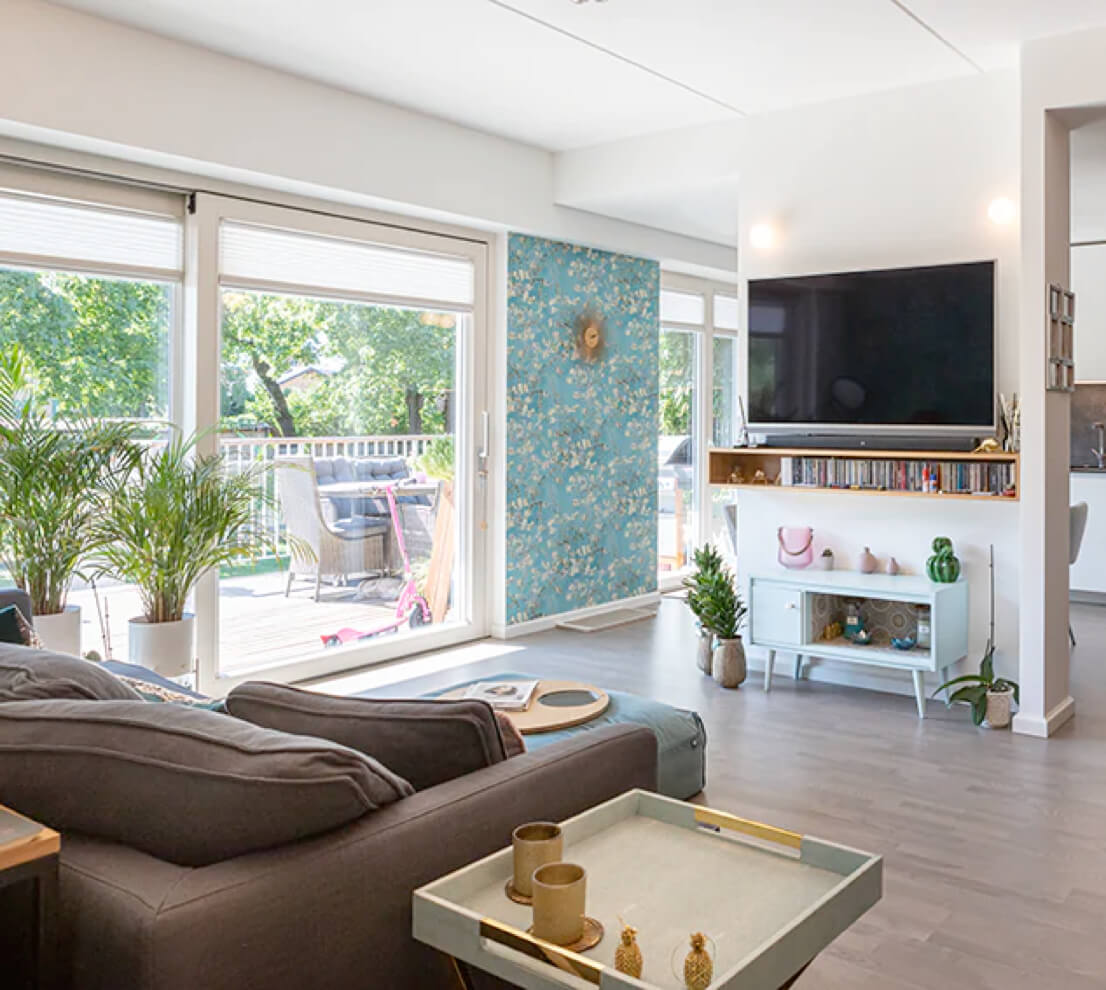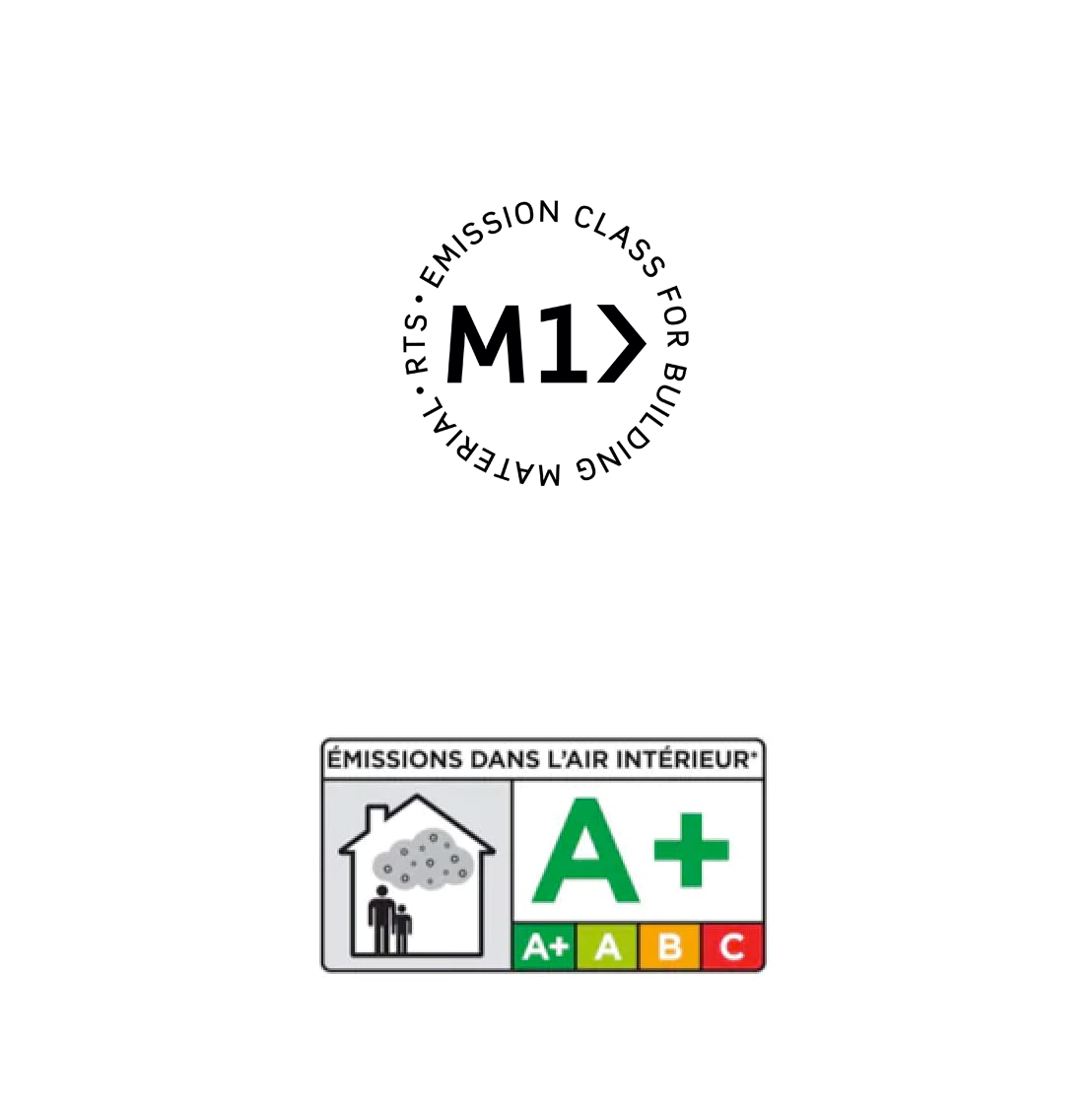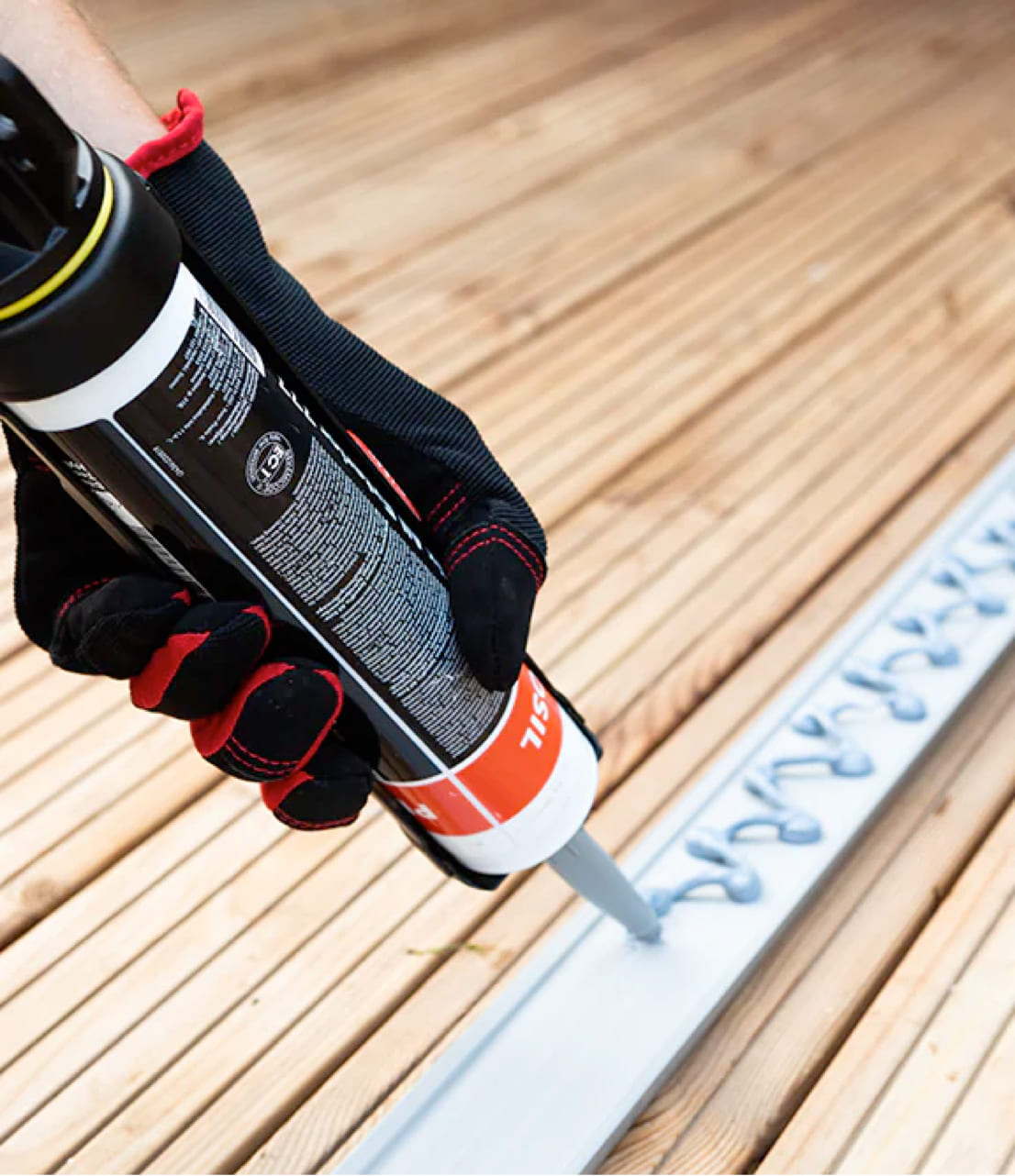
Low-VOC certification
More than 75% of our products will correspond to low-VOC certification requirements by the end of 2024.
More than 75% of our products will correspond to low-VOC certification requirements by the end of 2024.
What are volatile organic compounds?
Volatile organic compounds (VOC) are substances belonging to various chemical classes that evaporate easily and spread from materials and products to the environment. These can be both man-made and naturally occurring chemical compounds. It also includes many scents. In particular, volatile organic compounds affect indoor air quality. More than 300 volatile organic compounds are known, many of which are found mainly indoors. They are released from building materials, furniture, and floor coverings. If the concentration of volatile organic compounds is too high, a poor indoor climate and prolonged inhalation of small amounts of volatile organic compounds can cause irritation and health problems. Some substances are carcinogenic.
To save energy, houses are being built more and more airtight, so reducing the level of volatile organic compounds indoors is an important issue. As the European Union has not yet established a general regulation, the countries themselves regulate the concentration of volatile organic compounds.

What are volatile organic compounds?
There are several classifications in use in Europe that demonstrate low VOC concentrations in building materials. This means that the compounds released from them are not harmful to the environment or living organisms.
Emicode
EMICODE® is a trademarked classification system used to classify flooring installation products, adhesives, and construction materials into three classes according to their emission performance. The emission categories are EC2, EC1, and EC1 Plus. The Emicode label is widely known and recognized throughout Europe. Read more.

M1 classification
The classification sets out emission requirements for materials used in work and living quarters to ensure good indoor air quality without increasing the ventilation requirement. The label on the product indicates that the emissions and odor meet the M1 criteria. The M1 label is mainly known in Finland and Scandinavia.
French VOC regulation A+
A+ is an emission label based on volatile organic compound emission tests required for construction, finishing, and interior decoration products sold in France. The requirement is set out in the document “Décret n° 2011-321”. Regulation 3011-321 provides for four classes of emissions of volatile organic compounds: A+ (very low emissions), A, B, C (high emissions).
Certified products benefit both the end-user and the builder and property owner. The customer can be sure that the products do not emit volatile organic compounds and do not degrade the quality of the indoor climate. From the builder’s point of view, products with VOC certificates support the application for the BREEAM certificate of the sustainable construction assessment standard. The three most important categories of BREEAM are energy, indoor climate and well-being, and materials.

Objectives of the Wolf Group
Already today, 58% of Wolf Group brand PENOSIL products meet the VOC content certification requirements. The label covers all products in the foam portfolio, including one of our latest innovations – low isocyanate content spray foam virtually. The builder also finds a large assortment of PENOSIL sealants and adhesives.
Wolf Group as a Europe’s leading manufacturer of construction chemical products and systems, also offers contract manufacturing; part of our customer service is also the provision of VOC certificates for private label products.
With the help of Enterprise Estonia’s product development measure, Wolf Group develops products with low VOC content and raw materials that are safer for people and the environment, which meet the increasingly stringent expectations in various export markets: EC1+, M1, BvB, Sintef, Basta The result is seven new products with lower VOC content, the development of which has taken into account increasingly stringent legislation and restrictions on various chemical compounds. The project will last until the first half of 2023.

Wolf Group 7 Key SDG´s
The Sustainable Development Goals (SDG) are a collection of 17 interlinked global goals to achieve a better and more sustainable future. In line with Wolf Group´s mission, vision and values, Wolf Group will work to resolve societal issues by conducting sincere and responsible business operations and achieving innovation in our products. We will uphold the spirit of all 17 SDGs and have selected seven goals that are particularly interlinked with our business.







- We will contribute to a safe and resilient social infrastructure through innovation
- We will contribute to climate change by reducing the impact of our business activities on the environment
- We will contribute to a waste-free society through environmentally friendly products and the reuse of resources
- We will be a diverse organization where both employee motivation and value creation are fulfilled.
- We will protect health and reduce illnesses from hazardous chemicals through developing low VOC products



